The Hoodlum Saint

Brief Synopsis
Cast & Crew
Norman Taurog
William Powell
Esther Williams
Angela Lansbury
James Gleason
Lewis Stone
Film Details
Technical Specs

Synopsis
In 1919, World War I army major Terry Ellerton O'Neill returns to his hometown of Baltimore only to learn that he will not be offered his old job at the Baltimore Times newspaper. Unable to interest the newspaper in a column about returning soldiers, Terry becomes disillusioned and is forced to accept charity from the parish house. Eventually, though, Terry decides to reverse his fortune by devoting his life to seeking "big dough." When Terry hears about a wedding party for a wealthy socialite, he decides to crash it so that he can hobnob with the city's upper crust. At the wedding, Terry pursues reporter Kay Lorrison, the niece of newspaper publisher Joe Lorrison, and arranges to be seated at the banquet table next to East Coast Commodities founder Lewis J. Malbery. During the meal, Terry intervenes in an argument over business ethics between Lorrison and Malbery. Although he persuades Lorrison to give a him a job writing about Malbery's unsavory business practices, Terry soon switches loyalties and goes to work for Malbery in the stock market. With his new job, Terry sees no further use for Kay and immediately ends their romance. Despite his newly acquired wealth, Terry refuses to continue bailing out his shiftless pals, "Eel," "Snarp", "Fishface" and "Three Finger," and when Snarp is arrested for bookmaking, Terry decides to leave his fate in the hands of Saint Dismas, the "hoodlum saint" who was crucified with Christ. Snarp takes Terry's words to heart, and when he is released from jail, he begins devoting his life to charity, raising money for the needy using Terry's stock tips. Terry's luck soon runs out, though, and he loses everything in the stock market crash of 1929. Kay, who is now a widow, returns to Terry but not in time to save him from ruin. Terry eventually gets a job at a newspaper, but both his writing and his health begin to deteriorate, and he suffers a physical collapse. While recuperating, Terry is visited by his reprobate pals, who inform him that nightclub singer Dusty Millard is planning to steal money from the St. Dismas fund at the church. The news infuriates Terry and prompts him to leave his sick bed to prevent the theft from taking place. After personally ensuring that the St. Dismas fund is safe, Terry returns to Father Nolan's retreat and is nursed back to health by Kay, whom he intends to marry.

Director

Norman Taurog
Cast

William Powell

Esther Williams

Angela Lansbury

James Gleason
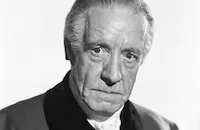
Lewis Stone

"rags" Ragland
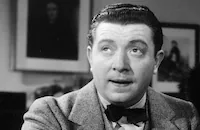
Frank Mchugh

Slim Summerville

Roman Bohnen
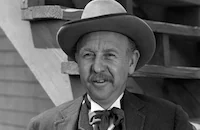
Charles Arnt

Louis Jean Heydt
Charles Trowbridge
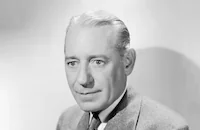
Henry O'neill
Wm. "bill" Phillips
Matt Moore
Trevor Bardette

Addison Richards
Tom Dugan
Emma Dunn
Mary Gordon
Ernest Anderson
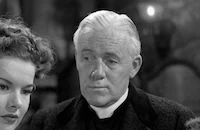
Charles D. Brown

Paul Langton
Al Murphy
Jack Davis
Garry Owen
Tom Dillon

Chester Conklin

Lee Phelps
Stan Blystone

Byron Foulger

Will Wright
Mary Lord
Sam Finn
William A. Janssen
Harry Tenbrook
Sol Davis
Phil Friedman

John George
Fred Somers
Billy Engle
Al Thompson
Heinie Conklin
Aileen Haley
Alice Wallace
Marilyn Kinsley
Beryl Mccutcheon
Frances Donelon
Joan Thorsen
Lucille Casey
Mary Jane French
Ethel Tobin
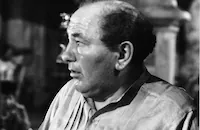
Charles Judels
Larry Steers
William Newell
Connie Weiler
Peggy O'neill

William B. Davidson
William Eddritt
Gordon Dumont
Jack Daley
Bob Thom
Charles Griffin
Billy Wayne
James Darrell
Leonard Mellin
Phil Dunham
George Bunny
Jessie Arnold
Lucille Curtis
Rhea Mitchell

Hope Landin
Joe Devlin
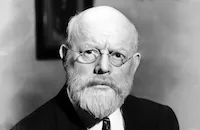
Howard Mitchell
Fred Nurney
Katharine Booth

Tim Murdock
Eddie Dunn
Mishka Egan
Ruthellen Johnson
Robert E. O'connor
Fred "snowflake" Toones
George Renevant
Albert Petit
John Valentine
Helyn Eby-rock
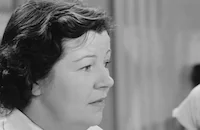
Margaret Bert
Jack Cheatham
Harry Denny
Jerry Lascoe Jr.
George Carleton
Frances Mcinerney

Russell Hicks
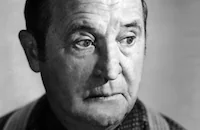
Frank Orth
Stanley Andrews
Jack Norton
Robert Emmett Keane
Dwayne Hickman
Leila Mcintyre
Charles Bates
Charles Wagenheim
Ruth Robinson
Jill Gervon
Adrienne Trazillo
Charles Polezzi
Paul E. Burns
Harry Hayden
Forbes Murray
Nolan Leary
Roger Cole
Hansel Warner
Henry Sylvester
Tom Coleman
George Sherwood
Stanley Blystone
Budd Buster
Roy Butler
Tom Leffingwell
Walter Bacon
Frank Jenks

James Flavin
Norman Leavitt

Barbara Pepper
Gladden James
Esther Howard
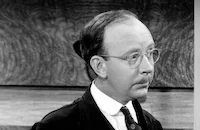
Hobart Cavanaugh
Joe Gilbert
James Conaty
Frank Pharr
Sarah Edwards
Betty Blythe
Crew
Edward Baravalle
Jimmy Campbell
Reginald Connelly
Mark Davis
Jack Dawn
Dale Deverman
Father Edward Dowling
Joe Edmondson
Dave Friedman
Cedric Gibbons
A. Arnold Gillespie
James Hill
Horace Hough
Irene
Ray June
Marion Herwood Keyes
Jack King
Standish J. Lambert
M. J. Maclaughlin
Harry Mcafee
Warren Newcombe
Dorothy Parker
Ralph A. Pender
Cliff Reid
George Richelavie
Ted Shapiro
Douglas Shearer
Nathaniel Shilkret
Robert W. Shirley
Newell Sparks
William Steinkamp
Michael Steinore
Doreen Tryden
Valles
Frank Wead
Ferris Webster
Don T. Whitmer
Bea Whitney
Edwin B. Willis

Photo Collections
Videos
Movie Clip


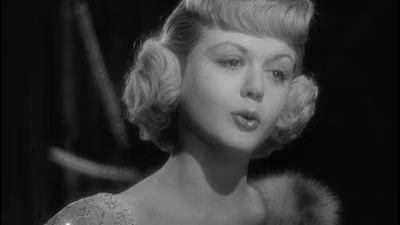
Trailer
Film Details
Technical Specs

Articles
The Hoodlum Saint
The screenwriter of The Hoodlum Saint, Frank "Spig" Wead, was considered a national hero. Having become a decorated flying ace in WWI, Wead later became a good friend, collaborator and inspiration to director John Ford, writing scripts for Ford's Air Mail (1932) and They Were Expendable (1945), as well as numerous other screenplays. He turned to the craft of writing after an accident crippled him for life. After the 1946 release of The Hoodlum Saint, Wead completed two more films before he passed away in 1947. Ford released a biographical film ten years later based on Wead's life called The Wings of Eagles, starring John Wayne as the Naval flying hero.
Director: Norman Taurog
Producer: Cliff Reid
Screenplay: James Hill, Frank Wead
Cinematography: Ray June
Editor: Ferris Webster
Art Direction: Cedric Gibbons, Harry McAfee
Music: Nathaniel Shilkret
Cast: William Powell (Terry Ellerton O'Neill), Esther Williams (Kay Lorrison), Angela Lansbury (Dusty Millard), James Gleason (Snarp), Lewis Stone (Father Nolan).
BW-93m. Closed captioning.
by Scott McGee

The Hoodlum Saint
Quotes
Trivia
Notes
Although an August 1943 Hollywood Reporter news item noted that RKO producer Casey Robinson was signed to write the screenplay, his contribution to the realesed film has not been confirmed. The news item also noted that actor Brian Donlevy was originally set to play legendary Dempster McMurphy, the real-life Chicago utilities and newspaper executive who founded a charitable organization in the name of St. Dismas. McMurphy's life appears to have been the basis for the character of "Terry O'Neill." According to an unidentified, contemporary news item in the file on the film at the AMPAS Library, Father Edward Dowling, a close friend of Dempster MacMurphy, was hired as an advisor on the picture and assisted in the preparation of the screen story. The extent of Dowling's contribution to the script has not been determined. M-G-M studio records indicate that Doreen Tryden dubbed all of Angela Lansbury's songs in the film. The Hoodlum Saint marked the screen debut of nine-year-old Jerry Laskoe, Jr., the nephew of director Norman Taurog. The picture was also Rags Ragland's last film before his death.















